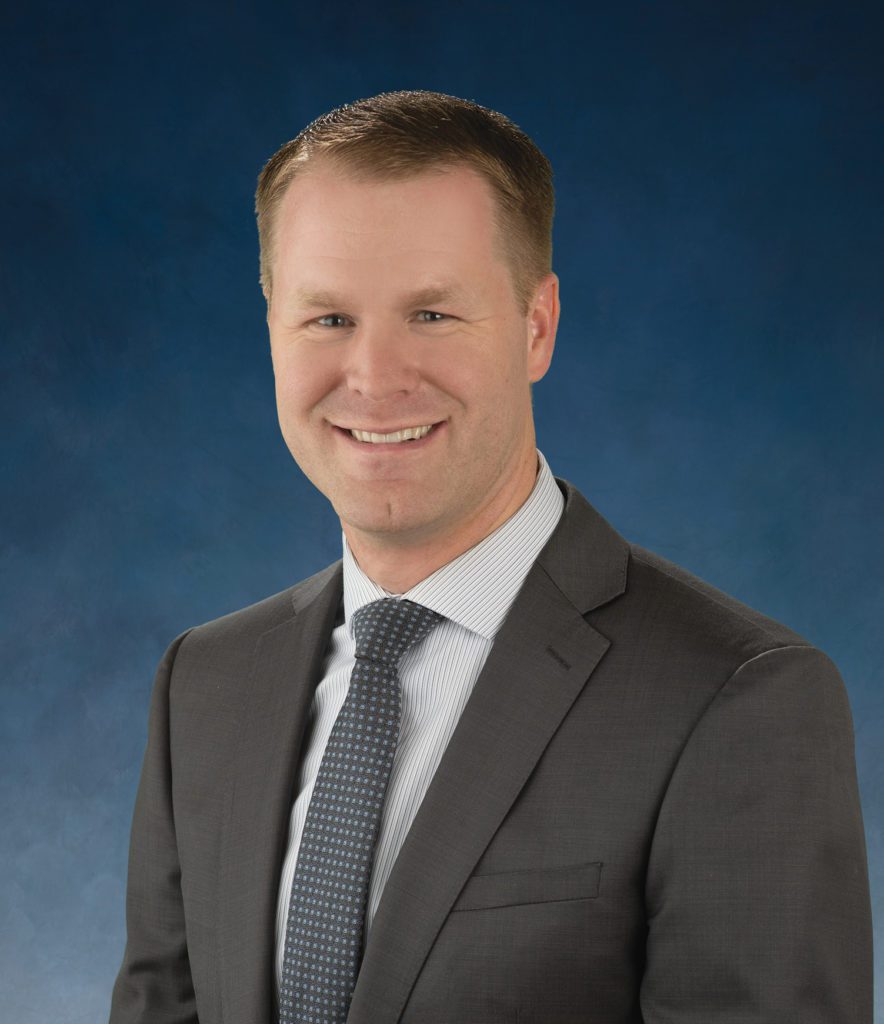
Home » Q&A with Chris Porter
Q&A with Chris Porter

October 12, 2022
CPA / Partner
PorterKinney
Number of employees you oversee: 18
Brief background of your business:
Soon after moving to the Tri-Cities in 2006, I started a small, home-based tax preparation company in addition to my full-time job. In 2012, I quit my day job and transitioned my company to a full-time CPA firm. In 2014, I partnered with Walter Kinney and the CPA firm was renamed PorterKinney.
How did you land your current role? How long have you been in it?
I have been an owner of my company since 2012. I currently split ownership 50-50 with Walter Kinney.
Why should the Tri-Cities care about the accounting industry?
The accounting industry provides needed support and guidance to thousands of small businesses in our local area. Without the help of competent CPAs, our local economy would struggle.
What led you to this type of work?
The desire to assist others to achieve their financial and professional goals.
What led you to create your own business?
I have wanted to start my own business since I was about 11, when I started “Cron Lawn Care” with a friend (we lasted about two months and had about $50 in gross sales). I have always been fascinated with the strategic thinking and creativity required by entrepreneurship.
What is one characteristic that you believe every leader should possess?
Optimism. In the challenging times in which we live, it is vital to see the good in every situation and the potential in every person.
What is the biggest challenge facing business leaders today?
The shortage of qualified workers. In most industries, businesses will need to have competitive compensation, a positive culture and opportunities for advancement if they are going to retain talented team members.
If you had a magic wand, what would you change about your field?
I would magically have 100,000 more qualified tax CPAs appear because we can certainly use them in this country.
How do you manage the tax season workload?
At PorterKinney, tax seasons are manageable. We work between 50 to 60 hours per week for 11 weeks. We have a lot of strategies in place that enable the busy season to be less crazy than a lot of other accounting firms.
What is the most common mistake you see when it comes to tax strategies?
Starting a business without a CPA. So many people get used to doing taxes (and just about everything) themselves that they don’t realize how complicated running a business can be.
I have seen business owners pay thousands in penalties and unnecessary taxes because they tried to do everything themselves.
The most successful business owners I know are not do-it-yourselfers, especially when it comes to taxes.
What is the biggest change in taxes in 2022?
Frankly, some of the most important tax changes for business owners were enacted in 2020 and 2021.
For example, if any business owner reading this has still not heard of the employee retention credit, they need to contact their CPA immediately.
For those who qualify, this credit can be substantial and there is still time to claim the credit for 2020 and 2021 on amended payroll tax returns.
What advice would you give someone going into a leadership position for the first time?
Be kind. If you praise those you lead, you will generally get much better results than if you criticize them. People will enjoy their work and even work harder if their efforts are noticed and recognized.
Who are your role models or mentors?
My parents! They are both educated, well-read, articulate, hard-working, informed, and, most importantly, they both have high standards of morality and ethics.
When my dad passed away in 2016, my parents had been married for almost 40 years and had the best relationship. What an accomplishment!
How do you keep your employees (or team members) motivated?
We have bonuses based on company growth, which we are all accountable for. From the person who answers the phone to the team members who service the client, we all take ownership of client retention and new client acquisition.
We also take time to improve our company culture with birthday parties, company lunches and company retreats.
How do you measure success in your workplace?
We have several key performance indicators in place including client satisfaction (as measured by a survey), project turnaround time, average billable hour and annual billings.
Obviously, there are nonmonetary success measures as well, including an individual’s contribution to our company’s positive culture.
What do you consider your leadership style to be?
I have a high level of trust in our team members.
Accordingly, I don’t micromanage. If you hire the right people and have well-defined procedures in place, micromanaging becomes completely unnecessary.
You can delegate with a high degree of confidence that the job will get done correctly.
How do you balance work and family life?
By simply putting family first. I attend almost all my children’s activities because I schedule them on my calendar (and don’t allow any client meetings during that time).
My goal is to work no more than 2,100 hours/year and I will be below that amount for 2022!
What do you like to do when you are not at work?
Spending time with my wife and four children. We enjoy going on walks, watching movies, playing basketball, playing tennis, going on vacations, swimming etc.
What’s your best time management strategy?
I love what Stephen R. Covey recommends on this: take time to schedule activities that are very important but perhaps not very urgent on your calendar each week. Without doing that, the urgent–sometimes unimportant–day-to-day craziness will take over.
Best tip to relieve stress?
Have times during each day when you completely disconnect from email, text and phone messages.
What’s your favorite book?
For a favorite business book, it’s a tough call between, “Good to Great: Why Some Companies Make the Leap and Others Don’t,” by Jim Collins, and “The 7 Habits of Highly Effective People,” by Stephen Covey.
For religious inspiration, I’ll take the Bible and Book of Mormon.
Do you have a personal mantra, phrase or quote you like to use?
“Simplicity is the ultimate sophistication.”
This quote has been attributed to Leonardo Da Vinci and has been so helpful as we make business decisions. Some of the most profitable businesses I know have very simple business models.
Some of the most complicated business problems actually have simple, straightforward solutions; we simply need to be looking for them.
Q&A Local News Taxes
KEYWORDS october 2022






